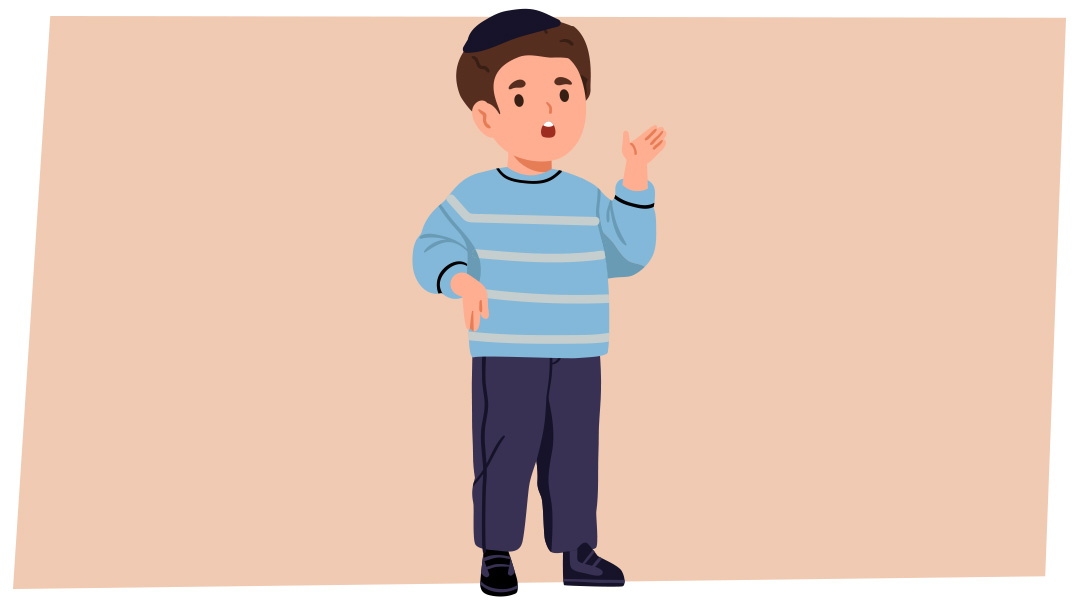Charting Old Territory

When all else fails, you create A Chart. But does it work?

You’ve tried it all: parenting classes and fermented beets. You’ve tried with softness and with firmness, with consistency and with flexibility. But at the end of the day — at the very end, when the kid really has to go to bed — he still doesn’t.
That’s when you take out that paper — or whiteboard, or colorful laminated printout with pictures of the kid doing all the tasks he needs to do before he goes to sleep — and you draw up A Chart.
Does it work?
- Excitedly draw up a brand-new chart and explain to Kid exactly how the system is going to work. “If you’ve brushed your teeth, put your clothing in the hamper, prepared negel vasser, leined Krias Shema, and you’re in bed by 7:30, you get a check. When we finish the chart, I’m going to take you to Amazing Savings to choose your prize.”
As soon as you finish saying this, you’ll have to field questions.
“If I didn’t brush my teeth?”
“If I’m in bed 7:31?”
“Can I lein Krias Shema after 7:30, in bed?”
The first night, the kid brushes his teeth, puts (most of) his clothing in the hamper, prepares negel vasser, leins Krias Shema, and is in bed 7:33. You surreptitiously move the clock back three minutes, cheer for the kid, and dramatically fill in that first check. Then you stick the chart on top of the freezer — and forget about it until bedikas chometz.
- If you actually do remember to consistently use the chart, you’re going to have deal with the haggling:
“I couldn’t brush my teeth because X was taking a shower.”
“I put Y’s clothing in the hamper instead of mine; he should put in mine instead now.”
“I prepared negel vasser, but it spilled.”
You’re the judge. Should he get a check? Check minus? Half a check? And if he was in bed 7:25, could he get a check plus? Two checks? Is there an option of erasing a check if he came out of bed again? If X got a check even though his clothing stayed on the floor, why can’t he?
- Then there’s the kid who begs for a chart for the sake of a chart. “I’ll get a check every time I kiss the mezuzah, and after 50 checks you’ll take me to the ice cream shop. Okay? Okay? OKAY?”
- There are the charts you don’t draw up. Rebbi draws them up for you. And sends them home along with a huge packet of other charts, and Yom Tov sheets, and a Hagaddah and a million reminders about schedule changes and school rules and beautiful songs and stories. Of course, the most important paper — The Chart — disappears before you even saw it, and the kid consequently can’t participate in the Most Amazing Program, even though he chazered and said Tehillim, because he can’t log his chazering hours or number of perakim. (Even if we didn’t lose that crucial chart paper, is it even possible to keep track of all our children’s charts over three days of Yom Tov when we can’t write anything down? School charts, go home.)
- School charts, I told you to go home. Mothers know best which charts are important. Not these:
Did he stand up when a parent entered the room?
Did he greet his siblings with a smile when he came home from school?
Did he give tzedakah?
Did he tell his mother thank you after supper?
Seriously, can we save our energy for the real thing — bedtime?
- A chart with conditions that aren’t quantifiable should also go home.
Did he make a brachah acharonah after eating?
—Yes, after breakfast. I don’t know about after supper. I highly doubt after his 12th drink at night, most of which were after bedtime, mind you.
Did he share with his siblings?
—The cleanup task, yes, his brand-new toolset, no.
Did he talk with derech eretz?
—Uh, how do I measure that? Does he have to address me in third person? He probably spoke with derech eretz most of the day. Do I have to count that one time he called his brother something that wasn’t his real name?
- At one point, the school will actually send home an old-fashioned bedtime chart. Well, tovim hashnayim min ha’echad, right? If so, is there any hope for X? Two charts, and he still didn’t brush his teeth!
- Next up is the chart that works in reverse. The kid gets a check if he doesn’t lie, doesn’t speak lashon hora, doesn’t commit baal tashchis. After years and years of such charts (not a chart I drew up, believe me. It’s either another school chart, or a chart-for-the-sake-of-a-chart, refer to #3). I still haven’t figured out how to operate such charts. A chart for “every time you don’t?” How do you measure that? Every time you don’t fight — every day? Every hour? Every minute? Every second?
- Sometimes a chart can actually be really smart — in theory. The problem is that whoever drew up this chart went a little overboard with squares and it will basically take a lifetime of 7:30 bedtimes to make it to Amazing Savings. Rip that one up and start again, or revise the rules — you get ten checks every time you’re in bed by 7:30 — but only if you fall asleep before 8:00. (“I was sleeping! Yu-huh, I was!”)
- And then there’s the school chart (yes, here we go again) that you completely forgot about all week. Sunday morning, the kid suddenly remembers that if he doesn’t bring his chart back, he won’t get the Massive Prize rebbi had promised. (You’ll never know what it was, it won’t survive the bus ride home.) As the bus honks, you grab a pen, scribble check-check-check-check-check-check, and hope the rebbi doesn’t marvel at how consistent your handwriting is from one day to the next. Because yes, of course X always stands up when Tatty walks into the room, and he always, always shares and gives tzedakah, definitely, 100 percent, check-check-check.
One day, you’ll actually meet me with Kid in Amazing Savings.
If he doesn’t complain about everything we’re not buying, he gets a check.
(Originally featured in Family First, Issue 790)
Oops! We could not locate your form.







